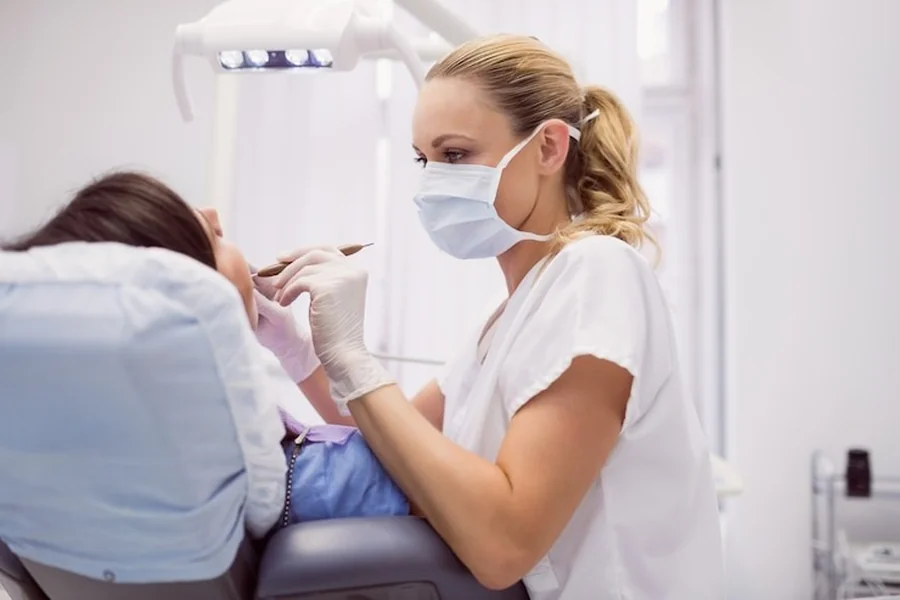Veterans’ Health: A Holistic Approach
Supporting veterans’ health goes beyond treating visible injuries or chronic conditions—it requires a holistic approach that includes mental, physical, and preventative care. Veterans often face unique challenges, including service-related stress, long-term physical strain, and barriers to consistent healthcare access. To ensure overall well-being, it’s important to integrate various aspects of health, from nutrition and exercise to mental wellness and regular medical checkups.
One often overlooked area is dental health, which plays a significant role in a person’s overall condition. Poor oral health can contribute to infections and heart issues and impact mental health and self-esteem. Dental maintenance should be part of every veteran’s health plan. To take advantage of available resources, it’s essential to familiarize yourself with the program options that support dental care for veterans. Understanding eligibility and coverage details can help avoid unnecessary out-of-pocket costs and ensure access to quality care. Regular dental visits can also help detect early signs of other health issues, reinforcing the value of comprehensive, preventative care.
Connections Between Oral and Overall Health
Scientific studies confirm what dentists and doctors have long suspected: oral health is intimately tied to the body’s overall wellness. Issues such as gum disease (periodontitis) are not limited to the mouth—they can raise the risk for severe conditions like heart disease, worsen diabetes, and even impact respiratory function. The mouth is a window to the rest of the body, often giving early warning signs of nutritional deficiencies, systemic infections, or chronic diseases.
Veterans experience higher rates of health conditions linked to poor oral hygiene, including cardiovascular disease and diabetes. These links mean that neglecting routine dental care doesn’t just risk teeth; it can have ripple effects across all aspects of health. When veterans include regular dental visits and preventive maintenance as part of their health plan, they also support their heart, lungs, and immune systems. This comprehensive approach is not just beneficial—it’s essential for long-term vitality.
Barriers Veterans Face in Accessing Dental Care
Despite the importance of dental maintenance, veterans often face more hurdles than their civilian counterparts in getting consistent care. Geographic challenges leave many rural veterans far from clinics or dental specialists, while financial burdens can prevent low-income veterans from affording even routine cleanings. Eligibility gaps for veterans’ benefits can be confusing and frustrating, with many not knowing what services are available or how to access them.
Logistical issues—including transportation difficulties and a lack of flexibility in clinic operating hours—can further complicate the process. For some, the stigma of dental problems or past negative experiences may contribute to a reluctance to seek care. The result? Minor dental concerns, like a small cavity or mild gum inflammation, can snowball into serious infections, severe pain, and costly emergency visits. Reducing these barriers starts with awareness, outreach, and streamlining processes so veterans can get the care they need when they need it.
Statistics on Veteran Oral Health
Numbers paint a revealing picture of the need for better dental support among veterans. Studies indicate that almost one in six veterans experience severe tooth loss, often defined as having eight or fewer teeth remaining. Additionally, oral health complaints are among the top non-injury reasons older adults, including many veterans, visit emergency departments each year. Many of these emergencies—such as advanced tooth decay or severe gum infections—stem from delayed or skipped preventive care, illustrating how crucial consistent dental maintenance is.
When regular dental visits aren’t prioritized, the cost and complexity of dental issues escalate rapidly. The focus must shift from reactive emergency care to proactive, preventive maintenance. Better access, education, and routine checks offer a clear pathway to healthier outcomes and reduced long-term costs for veterans and communities.
Long-Term Benefits of Regular Dental Maintenance
The actual value of regular dental maintenance lies in prevention and early intervention. By seeing a dentist for checkups and cleanings, veterans are much more likely to catch issues early, avoiding the expense and trauma of extractions, infections, or more invasive treatments down the line. Preventive dental care means veterans are less likely to suffer from toothaches, infections, or the embarrassment of missing teeth—a factor that often goes underappreciated but significantly impacts self-confidence and mental health.
Further, as highlighted by the U.S. Department of Veterans Affairs, good oral health supports proper nutrition, speech, and social engagement. A healthy mouth makes it easier to eat various foods, helping maintain a strong body and a sharp mind. Prioritizing dental maintenance gives veterans the foundation they need to pursue active, fulfilling lives, both physically and mentally.
Everyday Practices for Better Oral Health
An intense dental routine is built on small, daily habits that anyone can adopt. Brushing in the morning and before bed with fluoride toothpaste removes plaque and bacteria contributing to cavities and gum disease. Daily flossing removes food particles and prevents buildup in places a toothbrush can’t reach. It’s also important to rinse regularly with water, avoid tobacco products, and limit consumption of sugary snacks and beverages, which rapidly fuel decay.
Setting and keeping regular dental appointments—at least every six months—ensures problems like tartar buildup or small cavities are caught before they turn serious. For veterans eager to strengthen their routines, local health clinics often provide targeted resources and dental education that meet their needs and life experiences. Implementing even simple strategies consistently brings noticeable oral and overall health improvements.
How Families Can Support Veteran Wellness
Families are essential in supporting and encouraging veterans on their wellness journey. From helping a parent remember appointments to motivating a spouse or friend to prioritize dental hygiene, small daily reminders contribute to lasting habits. Meal planning, shopping for healthy snacks, and involving children in shared brushing routines can turn oral care into a supportive, collective effort instead of a solitary task.
Family involvement is especially impactful for veterans managing new routines or recovering from illness or injury. Simple encouragement, a shared sense of responsibility, and a positive environment can dissolve some veterans’ stigma or apprehension about dental care, making prevention and routine maintenance easier and more familiar.



